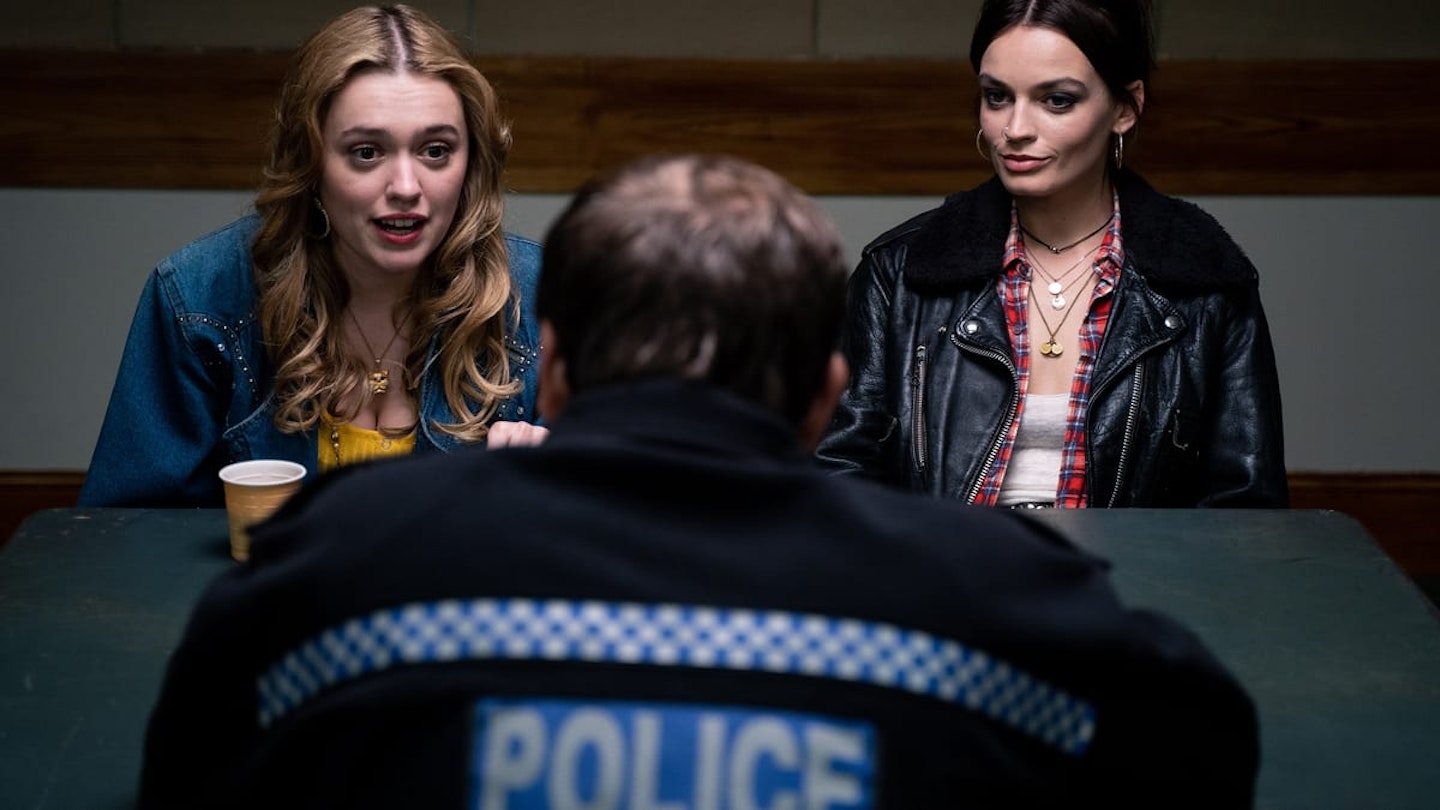By now, most fans will have watched Sex Education, season two, with its awkward, myth-busting tales of sex toys, threesomes and first times. There’s even a frenzied outbreak of chlamydia, where students unwittingly wear facemask to ‘protect’ themselves from the sexually transmitted disease. But amidst the laughter and (sometimes) absurd storylines, this season explores a really profound and revelatory tale of sexual assault.
Aimee – a character who usually isn’t taken seriously and is known for being appalling at baking - is assaulted by a stranger on a bus. We first see the attacker standing behind her while he masturbates and grunts. Then, just before Aimee realises, he ejaculates on her leg. When the other passengers take no notice, she gets off the bus without alerting the driver. Aimee tries to shrug off the harrowing experience, nonchalantly mentioning it to her best friend Maeve later on. Maeve however – who is the show’s pink-haired anarchical protagonist - deals with the situation expertly, marching Aimee down to the police station to report the crime.
Yet even though the situation is dealt with on a practical level, Amy is constantly haunted by the image of her attacker. She sees his face wherever she goes: at a party, in a crowd, leering at her on the backseat of the bus. Her PTSD leaves her with no option but to walk to school instead. After revealing her internal struggle to her friends, they decide to ride the bus with her. It is a touching and incredibly moving scene, which shows the power of female friendship. Watching this storyline felt especially poignant to me; I was sexually assaulted five years ago, and I wish my friends had been as been as understanding and empathetic as Aimee’s fictional friends were.

It happened when I was on holiday in Morocco one summer with a few friends. We had spent the day walking around the hot, claustrophobic streets of Fez, so my friend and I headed to the cooler and quieter outskirts of the city to watch the sunset. We climbed a steep hill and found some intriguing 14th century tombs at the top. I climbed an 8 ft wall and sat with my legs straddled either side, while my friend Tom* became transfixed by some broken bits of pottery on the floor. There was nobody else around, except from a man I could see in the distance. I initially thought he was harmless, so I jovially waved to the stranger. As he quickened his pace, it became apparent that he was beelining for me. When he was metres away, I realised that he was masturbating, muttering incomprehensibly and staring at me with an ugly, agitated look on his face.
I screamed and immediately threw myself off the wall, falling to my hands and knees. The wall had hidden the man from Tom’s view, so he looked around helplessly and asked me what had happened. I couldn’t speak - I just cried and said we needed to run. Thankfully, a passer-by heard the commotion and chased the man down the hill.
I was petrified that the man could come back at any time... I felt physically sick and horribly vulnerable.
After he had disappeared from view, the man asked if I was alright. I thanked him through my sobs and gingerly began walking back to the hotel. I was petrified that the man could come back at any time – for all I knew he could have been watching from afar. I felt physically sick and horribly vulnerable.
What hurt me most about this experience was that, unlike Aimee, I didn't feel I was given the space to feel upset. Some of my friends appeared to find it largely funny, teasing that it was my own fault for wearing ‘revealing’ shorts in a Muslim country. They might have themselves been feeling overwhelmed but for a long time, I believed them; I felt guilty, ashamed and disrespectful. I now know that’s absurd – it’s a moot point whether my outfit was ‘revealing;’ it didn't give that man the right to assault me.
My friends couldn’t comprehend why I was so distraught, which lead to me to feel embarrassed and think I was ‘hysterical.’ I no longer felt safe and became paranoid about showing ‘too much’ of my body. Walking around the cities we visited, I was suspicious of almost everyone. Like Aimee, I couldn’t just shrug it off.
After watching the scene in Sex Education, which perfectly conveys how the psychological aftermath can stay with you, I now realise that it was normal to feel violated and confused about what happened to me. I wish my friends had marched me down to the police station (I was laughed at when I suggested this). I wish they had, like Aimee’s gang, rode with me on a bus and assured me I was safe. This scene, in my opinion, is incredibly important for young girls and boys to see. It is essential that situations such as these are taken seriously, and crucially, not seen as just another funny story.
